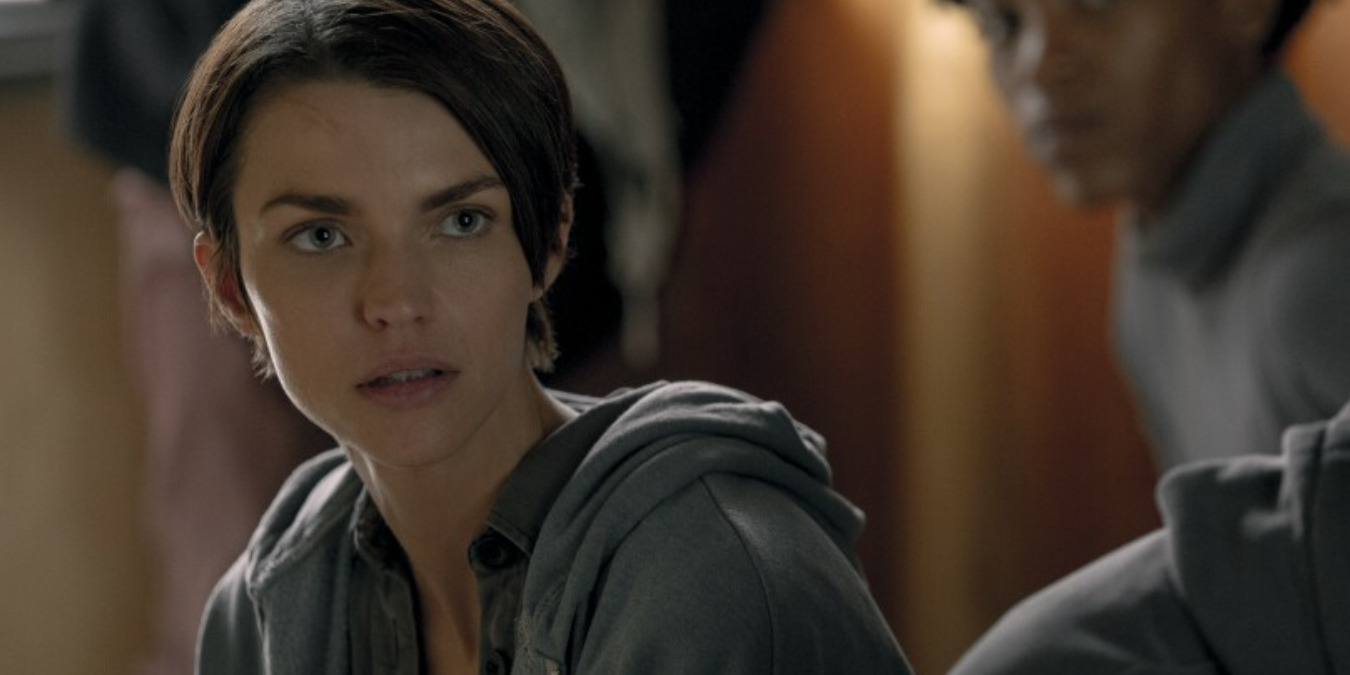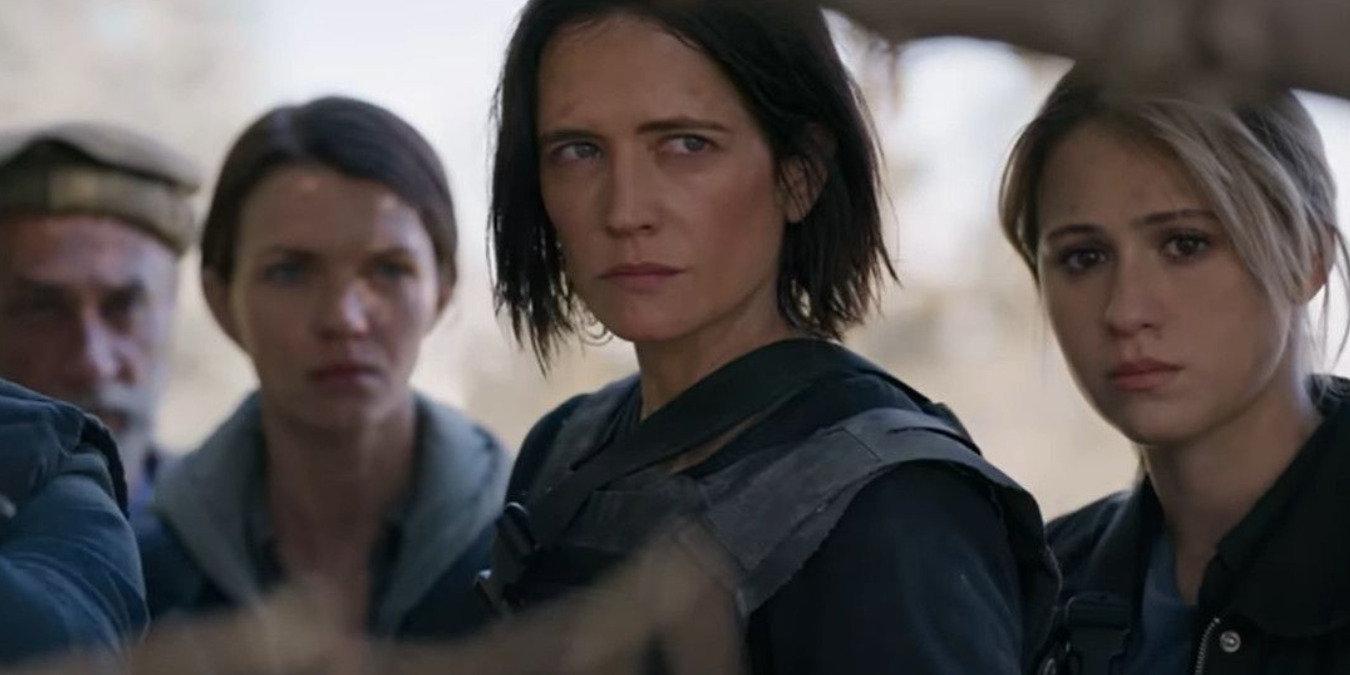Martin Campbell’s action-heavy film ‘Dirty Angels’ revolves around a group of soldiers carrying out a rescue mission against dangerous adversaries. Jake, the protagonist, drives the narrative as a marine with a fraught past and a stern rule about leaving no person behind. After ISIS attacks an International all-girls school in Pakistan, murdering numerous young girls and taking others hostage, Jake gets selected to lead a team on an undercover mission.
Surrounded by other highly trained individuals, including Geek, Bomb, and Shooter, the rescue team prepares for an impossible mission as a civil war between ISIS and the Taliban unravels in the foreign land. Jake and her fellow soldiers chart a rocky path full of near-fatal detours, dubious alliances, and plenty of blood and gore. However, the film’s geo-political setting—which occasionally plays into the central plot—adds a unique element to the tale that informs its real-life relevance.
Dirty Angels is a Fictional Mission-Driven Movie
The central plotline in ‘Dirty Angels,’ revolving around a rescue mission of American female students whom ISIS abducts, is an entirely fictional story. Director Martin Campbell worked on the film’s script with screenwriters Alissa Sullivan Haggis, Jonas McCord, and Gene Quintano, who can be credited for the story’s inception. In real life, there are no records of a similar American-issued rescue mission against the Salafi-jihadist group. Campbell is known for his action movies, namely ‘The Foreigner,’ ‘Edge of Darkness,’ his additions to the ‘James Bond’ franchise, ‘Casino Royale‘ and ‘GoldenEye.’ Therefore, he works with ease in the popular genre.

In ‘Dirty Angels,’ Campbell got to work on a previously unexplored niche within the genre through the film’s central ensemble cast. The story’s ensemble element caught the director’s attention, who was interested in exploring the dynamic within an action-heavy setting. As he discusses in a conversation with JoBlo, Campbell likes the fact that the all-female central cast played into the narrative in ways he thought were justified. He felt that, given the rampant gender-based discrimination against women in the Middle Eastern country, the on-screen soldiers could use their essentially under-the-radar optics to their advantage.
An instance of this manifests in the on-screen narrative as Jake and her team infiltrate their enemy, Amir’s lair, by donning easy disguises through burkas. Nonetheless, while Campbell and his team focused on realism in such aspects as well as the action and violence, they didn’t seek out realistic roots for the story. At its core, the filmmaker was only interested in creating a thrilling, mission-driven tale without any ulterior political or social messaging. For the same reason, the project only looks to predecessor cinematic endeavors such as ‘The Dirty Dozen,’ ‘The Wild Bunch,’ and ‘Kelly’s Heroes’ for inspiration. Ultimately, ‘Dirty Angel’s is a work of fiction.
Dirty Angels Efficiently Utilizes the Socio-Political Unrest of its Setting
Even though Martin Campbell had no motives for infusing ‘Dirty Angels’ with socio-political significance, the film’s premise relies on the tumultuous civil unrest in the area. It pitches the protagonists in a fight against an ISIS leader and occasionally makes backstabbing allies out of Taliban members. Furthermore, the narrative also highlights the consequences of the withdrawal of the American forces from Afghanistan. Therefore, since Jake’s story employs these elements as instrumental narrative tools without engaging with them on a socio-political level, it inevitably ends up penning a stereotypical, uncomplicated version of complicated global matters.

Therefore, while the story gets a few instances right, such as the oppression of women under ISIS and the violent anonymity with a death toll between the group and Taliban, it doesn’t engage with these concepts beyond the surface level. As such, its connections to reality become a bit stilted. Nonetheless, this seems to be in line with the genre conventions that ‘Dirty Angels’ plays into. Essentially, it offers an all-female action thriller in an archetypical soldiers vs. terrorist narrative.
Consequently, the central conflict of the mistreatment of female youth at the hands of ISIS blends into the storyline naturally enough. Still, aside from a basic perception of these groups, the tale doesn’t employ actual real-life individuals as off-screen counterparts. At the end of the day, Campbell presents an entertaining action film with plenty of guts and glory. Nevertheless, it doesn’t hold much basis in real-life instances or individuals.
Read More: Best Action Movies on Netflix


You must be logged in to post a comment.